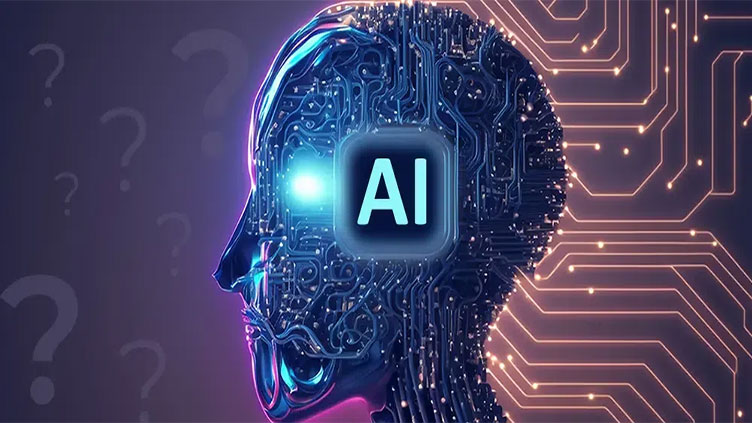Abdullah Kamran Khan
Artificial intelligence (AI) is the theory and development of computer systems capable of performing tasks that historically required human intelligence, such as recognizing speech, making decisions, and identifying patterns. AI has a profound impact on various aspects of life, such as social, cultural, business, economic, administrative, technological and political. AI can enhance social interactions and collaboration by creating digital human assistants, chatbots, and social robots that can communicate with people and provide various services. AI can also generate new forms of content, such as text, speech, images, music and video, that can enrich our culture and entertainment. However, AI also poses social challenges and risks, such as dehumanization, bias and discrimination, privacy and security breaches, and content manipulation. AI may also change the nature of work and education, creating new opportunities and challenges for workers and learners.
AI can influence our culture and values by creating new modes of expression, creativity, and art. AI can also help preserve and promote cultural diversity and heritage by enabling cross-cultural communication, translation, and learning. However, AI may also threaten our cultural identity and autonomy by imposing dominant or foreign values and norms. AI may also create ethical dilemmas and conflicts by challenging our moral principles and beliefs. AI can improve business performance and productivity by automating tasks, optimizing processes, enhancing decision-making, and providing insights and recommendations. AI can also enable new business models and opportunities by creating new markets, products, services, and platforms. However, AI may also disrupt existing businesses and industries by creating competition, reducing costs, increasing efficiency, and changing customer expectations. AI may also create legal and regulatory issues by raising questions about liability, accountability, transparency, and compliance.
Please, subscribe to the website of the republicpolicy.com
Furthermore, AI can boost economic growth and development by increasing productivity, innovation, and competitiveness. AI can also create new sources of income and wealth by generating value from data, information, and knowledge. However, AI may also create economic inequality and instability by creating winners and losers in the labour market, affecting wages, employment, and income distribution. AI may also create environmental challenges by increasing energy consumption, resource depletion, and pollution.
AI can improve administrative efficiency and effectiveness by automating processes, reducing errors, enhancing quality, and providing feedback. AI can also improve administrative transparency and accountability by enabling data sharing, monitoring, auditing, and evaluation. However, AI may also create administrative complexity and uncertainty by requiring new skills, competencies, and capacities. AI may also create administrative challenges and risks by affecting governance structures, power relations, and stakeholder interests.
AI can advance technological innovation and development by creating new methods of invention, discovery, and problem-solving. AI can also enable new forms of human-machine interaction, collaboration, and integration by creating intelligent interfaces, agents, and systems. However, AI may also create technological dependence and vulnerability by increasing complexity, uncertainty, and unpredictability. AI may also create technological threats and dangers by creating malicious or rogue agents, systems, or weapons. AI can enhance political participation and representation by enabling civic engagement, deliberation, and voting. AI can also improve political responsiveness and accountability by providing information, analysis, and feedback. However, AI may also create political polarization and fragmentation by affecting public opinion, discourse, and behaviour. AI may also create political conflict and violence by affecting power dynamics, interests, and values.
AI has a significant impact on various aspects of life, both positive and negative. Therefore, it is essential to understand the potential benefits and risks of AI and to develop appropriate policies and practices to ensure its ethical and responsible use. Consequently, it is critical to regulate AI operations.
Regulation of AI is a complex and challenging question that requires careful consideration of the potential benefits and risks of artificial intelligence (AI) for human society and culture. There is no simple or definitive answer, but rather a range of possible approaches and perspectives that need to be balanced and evaluated.
First, it is essential to recognize that AI is not a monolithic or homogeneous phenomenon but rather a diverse and evolving field that encompasses different types of technologies, applications, and domains. Therefore, any regulation of AI should be context-specific and tailored to the particular characteristics, objectives, and impacts of each AI system. A one-size-fits-all approach may not be effective or appropriate for addressing the complex and varied challenges posed by AI.
Second, it is essential to involve multiple stakeholders and perspectives in the design, development, implementation, and oversight of AI systems. This includes not only AI experts, developers, and providers but also users, consumers, regulators, policymakers, civil society, human rights defenders, and affected communities. A participatory and inclusive approach can help ensure that AI systems are aligned with the values, needs, and expectations of the people they serve or affect and that they respect their rights and dignity. It can also foster trust, accountability, and transparency in the use of AI.
Third, it is necessary to establish and uphold ethical principles and standards for AI that are grounded in universal human rights norms and values. These principles should guide the development and use of AI systems in a way that promotes human well-being, social justice, democracy, diversity, and sustainability. Some examples of such principles are fairness, non-discrimination, privacy, autonomy, beneficence, and human oversight. Several international organizations and initiatives have proposed or adopted ethical frameworks for AI, such as UNESCO’s Recommendation on the Ethics of Artificial Intelligence1, WHO’s Guiding Principles for the Design and Use of Artificial Intelligence in Health2, or Australia’s Artificial Intelligence Ethics Framework3. These frameworks can provide useful guidance and reference for regulating AI in different contexts and domains.
Fourth, it is important to monitor and evaluate the impacts and outcomes of AI systems on human society and culture, both positive and negative. This requires collecting and analyzing relevant data and evidence on the performance, behaviour, effects, and risks of AI systems in different settings and scenarios. It also requires establishing mechanisms for feedback, review, audit, redress, and remedy for any harms or violations caused by AI systems. A robust and rigorous assessment of AI systems can help identify and address any gaps or shortcomings in their design or implementation, as well as inform future improvements or innovations.
Fifth, it is advisable to adopt a precautionary and adaptive approach to regulating AI that anticipates and prevents potential harms or abuses before they occur or escalate. This means being proactive rather than reactive in identifying and mitigating the ethical challenges posed by AI systems. It also means being flexible and responsive to changing circumstances or new developments in the field of AI. A precautionary and adaptive approach can help ensure that the regulation of AI is timely, relevant, effective, and resilient.
These are some possible particulars that help you critically evaluate how to regulate AI to safeguard social, cultural, ethical and humane aspects of human life.
















